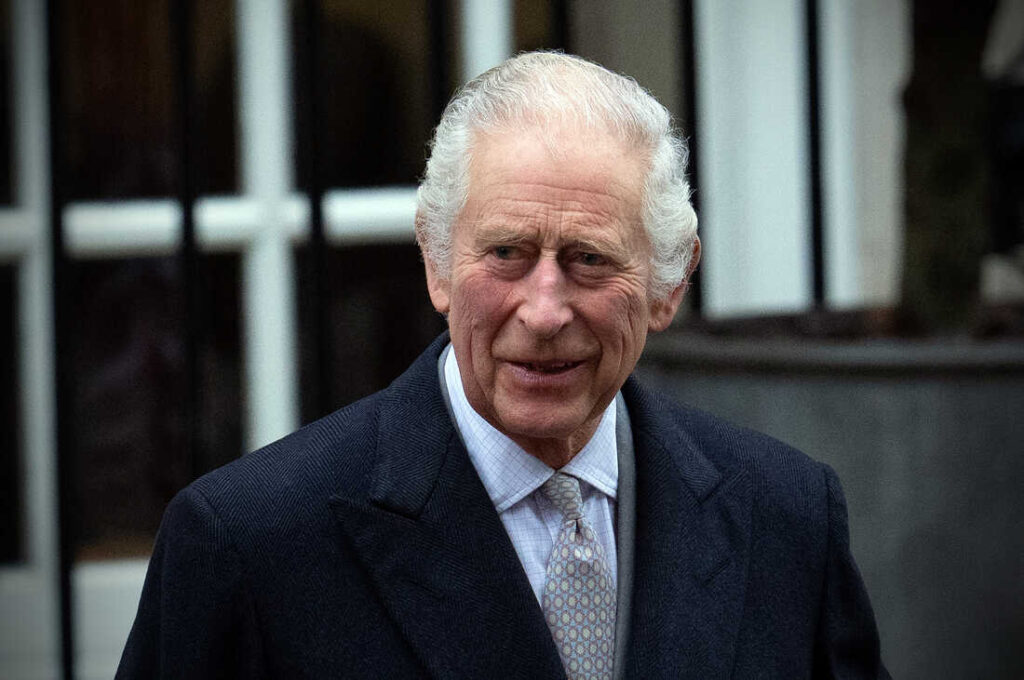
King Charles III has been diagnosed with cancer and has made the decision to reduce his public duties while undergoing treatment.
King Charles III has been diagnosed with cancer following a recent procedure for benign prostate enlargement, Buckingham Palace announced on Monday. The statement did not specify the type or severity of the cancer.“During The King’s recent hospital procedure for benign prostate enlargement, a separate issue of concern was noted. Subsequent diagnostic tests have identified a form of cancer,” the palace said in a statement.Although the specific type of cancer was not disclosed, the palace clarified that Charles does not have prostate cancer.
Benign prostate enlargement, a common condition among older men, does not typically indicate cancer. About 80% of men over the age of 70 experience this condition, according to Yale Medicine. Charles, who turned 75 in November, falls within this demographic.Symptoms of an enlarged prostate can include difficulty urinating, loss of bladder control, or frequent urination during the night. In cases where these symptoms are present, doctors may recommend a transurethral resection to remove excess prostate tissue.
Dr. William Oh, Chief Medical Officer of the Prostate Cancer Foundation, explained that this procedure aims to alleviate urinary issues by removing obstructive tissue from the prostate.During a transurethral resection, a scope equipped with a camera is inserted through the urethra to visualize the prostate. This procedure allows doctors to identify and remove problematic tissue. Additionally, the scope may reveal abnormalities in nearby areas such as the bladder or urethra.
According to Dr. Christian Pavlovich, a professor of urology and oncology at Johns Hopkins School of Medicine, the scope can detect asymptomatic conditions like bladder tumors.Dr. Justin Friedlander, a professor of urologic oncology at Fox Chase Cancer Center, added that the presence of bloody urine during the procedure could indicate potential issues in the kidney or ureter, including kidney cancer.
In summary, while undergoing a procedure for benign prostate enlargement, King Charles III was diagnosed with cancer. The exact type and severity of the cancer have not been disclosed.
In other instances, medical professionals may identify cancerous tissue that originated elsewhere in the body while examining prostate tissue removed during surgery.
“The prostate could be affected by cancers that are not of prostatic origin, such as lymphoma – a type of blood tumor – or cancer of the urothelium, which lines the urethra and bladder,” noted Pavlovich.This discovery would indicate that the cancer has metastasized from other organs and may be more advanced, as explained by Friedlander.
Dr. Julio Pow-Sang, chair of the genitourinary oncology program at Moffitt Cancer Center in Tampa, Florida, stated that it’s generally uncommon to encounter cancerous tissue during a procedure for prostate enlargement.He emphasized, “Around 90 to 95% of the time, it’s benign, but there’s always a chance of a surprise.”Buckingham Palace did not specify the nature of the procedure Charles underwent for an enlarged prostate, although it has previously been described as “corrective.”
Sometimes, rather than conducting a transurethral resection, doctors may opt to eliminate excess prostate tissue using laser or high-heat methods, though these procedures are less prevalent.According to Buckingham Palace, Charles arrived in London on Monday to commence regular outpatient treatments for cancer.
“The Prince is appreciative of his medical team for their skillful care and prompt action, maintains a positive outlook on his treatment, and eagerly anticipates resuming his full public duties at the earliest opportunity,” the palace stated.